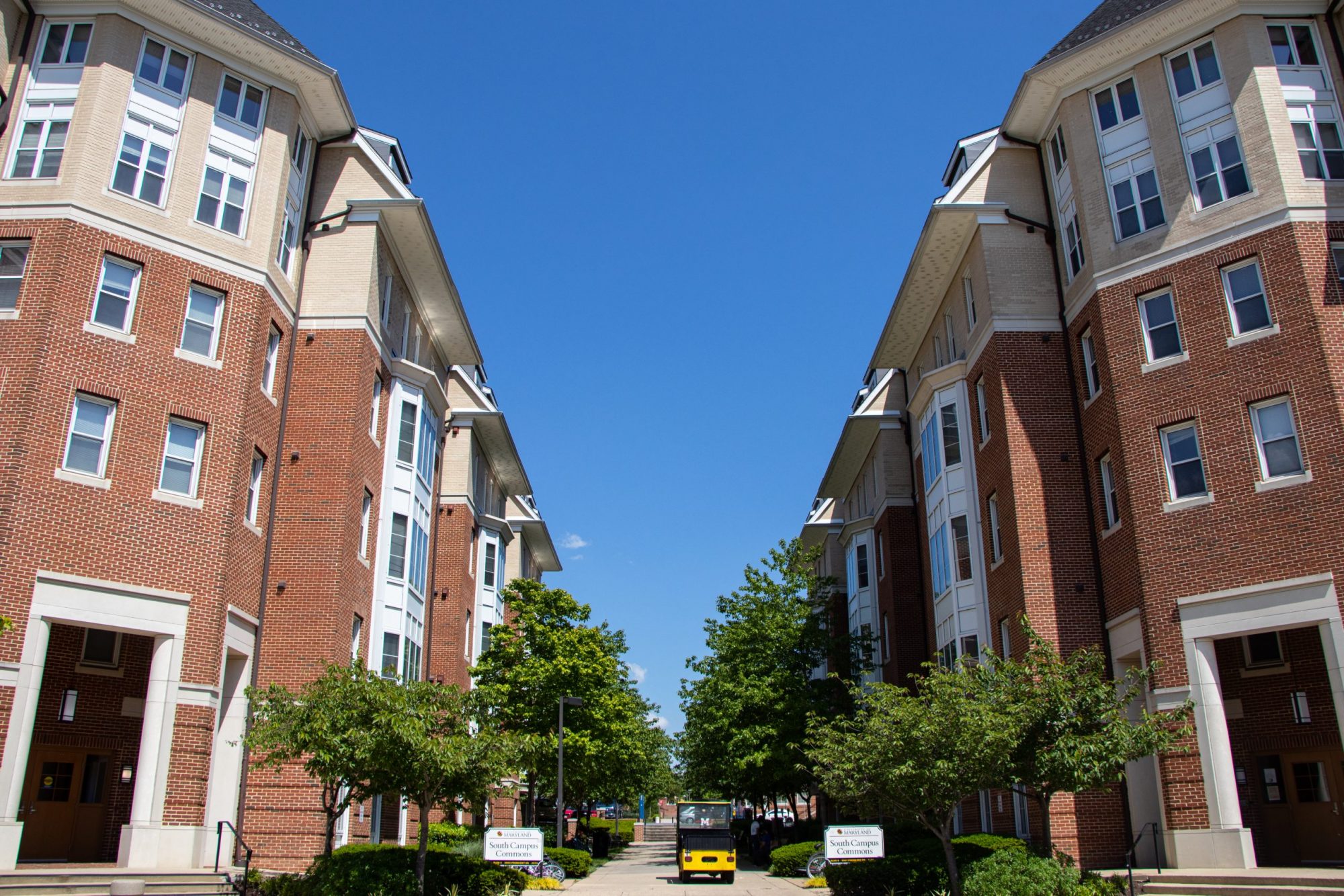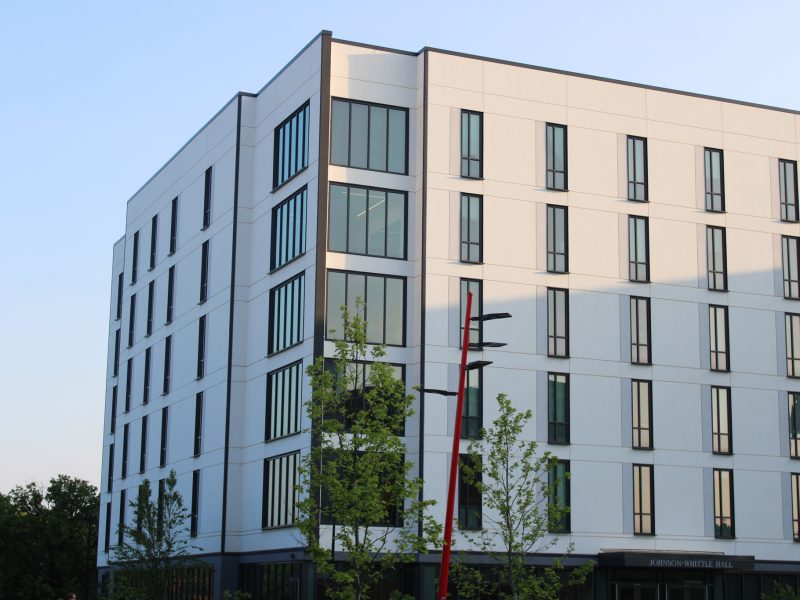Up until 5 p.m. on Monday, University of Maryland students who signed up to live in a dorm in the fall could cancel their housing agreements without financial penalty. That’s not how it worked for students who signed leases for on-campus apartments, though — and now many are fighting to get out of paying rent for a space they won’t be living in next semester.
With 92 percent of fall undergraduate course sections at the university at least partially online, some students say living on-campus won’t be worth it. Others have raised concerns about health and safety. And, as of Monday evening, more than 1,000 have signed onto a petition calling for South Campus Commons and Courtyards to release students from their leases.
Kelly Focazio, a rising senior and management major who signed a lease for Commons, said the apartment complex is essentially giving students a choice: Risk contracting the virus while living in their apartment or stay at home while still paying rent. She’s planning to continue living with her parents in New Jersey next semester, and she will be paying out-of-state tuition and student fees, as well as $935 in rent each month.
“If they let people cancel their leases, there wouldn’t be as many people living in the buildings and the risk of spread wouldn’t be as bad,” she said. “But clearly they care more about the money.”
In an email sent to Courtyards and Commons residents Monday afternoon, management wrote that they had been receiving a “high volume of requests and inquiries regarding concerns for the upcoming lease year.” They understand that the move of most classes to an online format left many families hoping to cancel their leases, management wrote, and are happy to help through the “means currently available”: the re-leasing process.
“Currently, we anticipate the waitlist to continue to grow over the coming days,” the email read. “We will continue to explore opportunities to expand the waitlist in order to aid residents in connecting with individuals who have a higher need and desire to remain on campus.”
[Living in a UMD dorm this year requires agreeing to new terms. Some say they’re unfair.]
Neither Courtyards nor Commons responded to a request for further comment.
Gavin Kohn, a rising senior astronomy and mechanical engineering major, said he and his roommate have been trying to release their Courtyards apartment for days now, with no luck — his roommate started Thursday and he started Friday.
To help ease the process, Courtyards sent Kohn and his roommate a spreadsheet with the contact information of about 40 students who had expressed interest in renting a Courtyards apartment. As an incentive, Kohn and his roommate offered $1,000 per person to anyone who would take their apartment.
Kohn and his roommate spoke with some people who expressed interest, but they later changed their minds: Someone else had offered them $1,200 a person.
“[Courtyards has] said that they’re trying to get more people to be included in the releasing thing, but they’re still putting it on us,” he said. “I guess the point that seems unfair to a lot of residents is that we couldn’t have predicted this.”
Charlie Doublet also tried releasing his Commons apartment, but he said he soon realized he likely wouldn’t be successful: There are just too many people trying to get rid of their apartments. He’s been trying to terminate his lease with the complex all month, and said Monday night that his brain was “fried” from arguing with its management all day.
Doublet, a rising senior public policy major, said all of his classes are online next semester. Living with roommates also feels unsafe — his apartment is small, he said, and it wouldn’t be easy to socially distance. But more than that, he said he didn’t want to live in an apartment run by management that acted in such a “sketchy” way.
[Incoming UMD freshmen debate on-campus living amid mostly virtual fall semester]
On July 13, Commons and Courtyards both sent out emails updating the “rules and regulations” for living at the complexes. Residents should consider avoiding having guests and visitors in their apartment, wear a face covering on the campus and reduce non-essential travel, management wrote. And, the email read, they should acknowledge the “contagious nature” of COVID-19 and “voluntarily assume the risk” that they may contract the virus on the campus and get sick or die.
Students planning on living in a dorm next semester were required to sign an addendum to their housing agreement that detailed many of the same conditions as the apartments’ updated rules and regulations. However, those with Commons or Courtyards leases weren’t given the chance to challenge the new rules — which many students have said represent changes to their leases and are therefore license for them to be terminated.
But in Monday’s email, the management team wrote that the changes to the rules and regulations do not “alter the lease agreement.” Lease agreements for these apartments state that the rules and regulations section is “subject to modification by the Landlord” and the “Tenant shall be bound by all such modifications upon notice.”
“These guidelines help everyone act in a responsible manner that demonstrates respect and consideration for those around them,” Monday’s email read. “They are a clarification for understanding and do not represent a material change in the lease or enforceability of responsible living in our apartment communities.”
Still, many students have indicated they will continue pushing to be released from their leases. Kohn says he is meeting with an adviser from the university’s Undergraduate Student Legal Aid Office on Thursday, and other students have reached out to state representatives.
But Doublet said he and his mom don’t have the “will or the means to lawyer up.” Now, he’s not sure what he’ll do if he can’t get out of his lease. He’s leaning toward staying home, even if it means paying rent for an apartment he’s not using.
“Everyone’s stuck in this conundrum of, like, ‘Do we throw our money down the drain? Or do we put ourselves at risk?’” he said. “And it’s kind of fucked up.”



